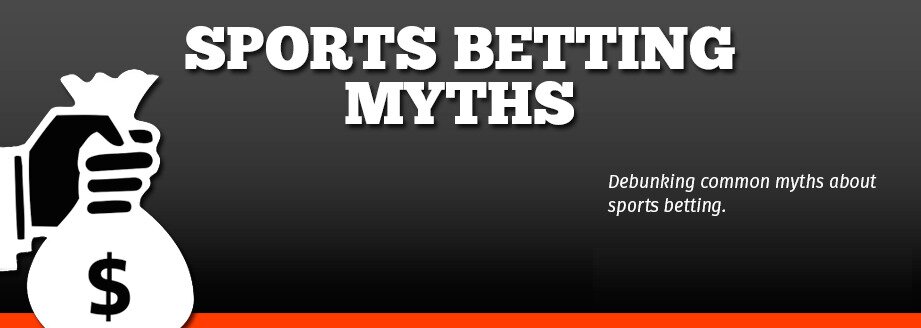
With the Supreme Court striking down PAPSA and not only allowing New Jersey to license and regulate sports betting but other states, as well, we’ve entered a new era of sports betting. As I stated in a blog post last week after the decision was handed down – I don’t think this is the end of offshore online sports betting.
Since the High Court ended the prohibition on sports betting nationwide, we’ve seen a lot of people speculating on the future of sports betting. There have some particularly bad ones, most notably this USA Today piece on the future of sports betting and its relationship to the game of baseball. Folks, even to novice sports bettors, that one is about as cringe-worthy as it gets.
Far too many people have been tweeting, writing, and giving their opinions on sports betting and the impact of the SCOTUS decision without having ever bet on sports themselves. So, I’ve taken it upon myself to debunk the most common arguments or statements made by amateur sports bettors and media personalities when it comes to all things sports betting.
Myth # 1: Sportsbooks Try To Balance Action 50/50 On Sides & Totals
While this was likely true at one time and still true to the extent that sportsbooks don’t want to be too overexposed (massive amounts of bets on one side where a loss would put the book in financial trouble) – the focus of sportsbook managers is not to shoot for 50/50 action, collect their vigorish (10 percent), and move on. Of course, it’s fine it works out that way, but that’s not their goal. For the sportsbooks, the goal is not to get hit hard with sharp betting action.
The public doesn’t bet nearly as much sharp bettors do and any sportsbook manager worth his salt knows the difference between heavy action between a sharp and a square bettor. Sharps are betting a massive amount more money – they move betting markets due to their bet size. These players are issues for sportsbook managers.
Sharp bettors regularly have their bet sized limited or are outright banned from wagering at certain books once they have won too much. The vast majority of bettors are going to lose regardless. Losing the least to the 10% or so of sports bettors who are profitable long term is the goal for sportsbook risk management.
Myth #2: You Can Bet As Much As You Want On Any Sport Or Market
This one clearly comes from people that don’t bet or bet very little. Anyone who has bet any considerable amount on a game ($500 or more on sides and totals and $200 on props) knows that this is simply not true. Yes, when it comes to betting towards the end of the week, just about every sportsbook will let you bet thousands of dollars on NFL sides and totals. Most will let you bet five-figures, and others, you can bet in the hundreds of thousands.
 However, when it comes to other sports, it’s far different. Many sportsbooks have limits as low as $500 on NHL sides and totals. NBA totals? At some sportsbooks, limits are as low as $1,000. NCAA basketball sides and totals can be even lower. Want to bet obscure European soccer leagues at sportsbooks that cater to Americans? You’re not going to get more than $500 on that and often less than that.
However, when it comes to other sports, it’s far different. Many sportsbooks have limits as low as $500 on NHL sides and totals. NBA totals? At some sportsbooks, limits are as low as $1,000. NCAA basketball sides and totals can be even lower. Want to bet obscure European soccer leagues at sportsbooks that cater to Americans? You’re not going to get more than $500 on that and often less than that.
The same goes for MLB baseball. Basically, everything is going to have substantially lower limits compared to college and professional football. So, no, you can’t just bet any amount on anything you want. In fact, sportsbooks are extremely protective with their betting limits when it comes to just about anything but football.
Oh, and let’s not forget about propositions. We always tell bettors they are great bankroll builders and that’s certainly true, but there is no sportsbook online that takes more than $500 on props. The only exception here might for the Super Bowl or March Madness basketball games.
Myth # 3: Your Local Bookie Will Break Your Legs If You Don’t Pay
One of our most popular articles here at Safest Betting Sites is our article on local bookies. It’s not surprising since the vast majority of states don’t have state-licensed sportsbooks. Heck, even in Las Vegas, the mecca of licensed sportsbooks in the U.S., there are local bookies. One of the biggest misconceptions these days is that if you deal with a local bookie and for some reason, you can’t pay on time, that a bunch of mafia goons with a baseball bat will be at your doorstep.
That’s far from the truth. In fact, I know someone who personally owed a local bookie around $10,000 and this is after weeks of winning thousands of dollars (the bookie paying him), but he couldn’t pay. The bookie didn’t assault him or threaten him. He paid him the few hundred dollars he had on him and set up a payment plan.
Probably the most annoying thing that will happen is them blasting your cell phone constantly until you contact them and work something out regarding payment. It’s not exactly a smart business plan to be threatening or beating up people when you’re running an illegal business, as it is. This isn’t the movies. If you stiff a bookie for several thousand dollars – it’s likely that nothing will happen, other than him not taking your action anymore. Loads of people bet and bookies deal with people who don’t pay all the time and there isn’t an epidemic of people walking around on crutches.
Myth #4: Individual Sportsbooks Create Their Own Odds
Another massive misconception about sportsbooks is that each sportsbook has their own set on managers that create odds for each sporting event. While it’s true they may do this on more obscure bets or wagers, such as propositions, this is almost never true when it comes to sides and totals, from major markets like NFL football, all the way down to German handball.
 Pinnacle Sports (Full Review) is where lines originate and the rest of the market moves with them. These days it’s almost in unison. As soon as Pinnacle moves, just about every other sportsbook follows within a matter of seconds. In fact, sportsbooks will ban people specifically for something called “steam chasing” which in today’s market means trying to beat them on Pinnacle odds moves.
Pinnacle Sports (Full Review) is where lines originate and the rest of the market moves with them. These days it’s almost in unison. As soon as Pinnacle moves, just about every other sportsbook follows within a matter of seconds. In fact, sportsbooks will ban people specifically for something called “steam chasing” which in today’s market means trying to beat them on Pinnacle odds moves.
In fact, the best way to make a profit betting sports is picking off sportsbooks that are inefficient compared to Pinnacle’s odds. The main reason sportsbooks may be different from Pinnacle is to line shade against public betting patterns. The other is that they are simply lazy or inefficient. This is why we stress line shopping against Pinnacle as a profitable betting strategy, in itself.
Myth #5: Legal Betting May Lead To Match Fixing & Point Shaving
I generally don’t think match fixing happens much when it comes to American sports. There are plenty of safeguards in place and let’s also not forget that fixing a game is difficult, even if you have a few players or a referee on the take. For the most part, American sports are not fixed and there are several reasons for that. One is the high salaries of the players, the tarnished legacy and immediate ban they would receive for participating in match-fixing. The other is the extreme vetting of referees in all sports, but especially when it comes to NFL football.
Of course, with more places available to bet, and with betting accounts more available to oversight – this isn’t going to increase the likelihood of match-fixing or wagering. In fact, it will likely make it even harder. It’s certainly not going to make it more prevalent. It’s never been a widespread problem and isn’t going to turn into one if casinos start opening sportsbooks around the country.



